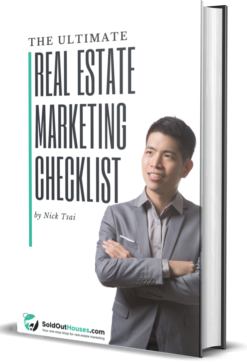Have you just obtained your real estate license? Are you wondering what next steps you should take to succeed as a real estate agent?
As a new real estate agent, you might not realize the amount of work it takes to establish yourself as a successful real estate agent. You must learn how to organize your time, schedule important tasks, manage your finances, and reach out to prospective clients.
However, if done correctly and applied well, these tasks can be a launching pad to an illustrious career.
To ensure that you kickstart your career in the right direction, I’ve put together these 5 vital tips that every beginner real estate agent needs to know. Go through the article and learn more.
1. Work With the Right Brokerage
One of the first and most important decisions you’ll make as a new real estate agent is the brokerage you’ll work for. Your brokerage will determine whether you gain experience in your industry.
In all honesty, many real estate brokerage firms are waiting to hire you. However, not all of them are good for you. In fact, one of the leading reasons why real estate agents fail is because they lack the right training and support in their first two years.
So, how do you ensure that you get the right brokerage to work for?
Firstly, do a lot of research. You want to identify a brokerage that shares the same goals and values as you. You’re more likely to succeed with such a firm.
Secondly, book interviews with multiple brokerage firms. While you’ll carry along your real estate certification and prepare to answer some questions, don’t forget that this is also your chance to get to know the firm. The interview is just as important for you as well.
Ask specific questions about their needs and goals. See whether these values and goals will launch your career in the right direction.
In case you want to know some pointers that’ll help you choose the right brokerage, look out for a firm that:
- Is located in the market you want to work in
- Serves your target clients and the niche you’re interested in
- Offers great mentorship and training
Since you’re new, focus heavily on training and mentorship. Your first brokerage firm should offer the right support, education, and tools.
Keep in mind that while you can always change your brokerage firm later in your career, you only have this one time to launch it. Make sure you start it well.
2. Widen Your Sphere of Influence
Real estate deals are greatly reliant on relationships. Your network is the best source for your first clients.
Since you’re a beginner, you may not have a wide network at first. That’s why you need to use your sphere of influence. While many newbies may think they do not have a sphere of influence, they just don’t know how to identify it.
Your sphere of influence (SOI) includes your family, friends, colleagues, and acquaintances. These are the people who will help you get your first clients and help grow your network.
Have all their details and contacts in one place, such as a spreadsheet, email database, or any commercial software, for easier monitoring. Once you have them in one place, you can then add more contacts each time you meet someone new through your SOI.
The key to having an effective network lies in numbers. The more people you have in your SOI, the greater your chances of getting deals and new clients through referrals.
Invest your time to meet new people and add them to your network. One easy way to do this as a beginner is by attending industry events. Stay in the loop for upcoming workshops, seminars, and any other networking opportunities.
Once you’ve met new people and gotten their contact information, don’t stop there. Ensure they’ll keep thinking about you by constantly checking in with them. You want them to remember you and what you do so that they may reach out when they or someone close to them needs your services.
3. Use the Right Marketing Materials
Once you’ve obtained your real estate license, you want to ensure everyone knows about it. You increase your chances of bagging your first client by starting to market aggressively sooner.
You can start with marketing basics such as:
- Ordering creative business cards
- Creating an email list
- Taking a high-quality professional headshot
- Having a real estate bio
- Social media presence
Since you’re just starting out, note that you don’t need to implement every marketing strategy immediately. Marketing is a full-time job that requires you to dedicate a lot of time and resources.
Let’s say you decide to create your realtor website and build an audience for your social media pages at the same time. You’ll spend a lot of time juggling between both strategies and you’ll most likely forget to look for clients.
Have a clear idea of your priorities. This will help you stay grounded and not get carried away by tasks that don’t benefit your core business. Talking to your mentor, team leader, or business coach will help you set your priorities.
Another important marketing tip for new realtors is that you shouldn’t shoulder the burden of doing everything by yourself. While you may not have the budget to hire someone else to do some tasks for you, keep in mind that outsourcing is the most efficient way to get things done.
You can start by outsourcing the tasks to a professional or an assistant. You can also invest in the right tools such as SoldOutHouses.com’s Pro Membership. This will help you with your important marketing tasks. Visit https://soldouthouses.com/pro today and start your 14-day free trial.
4. Draft a “Loose” Business Plan
First things first; you need to start thinking like a business. No one is going to follow up on your daily tasks and goals. Start thinking like an independent contractor running a business. Have a business plan if you’re aiming to be successful.
When starting out, your only focus may be on getting your first client. As you grow, however, your focus will change and expand. If you’re looking for long-term success, then you need a long-term plan.
A newbie realtor’s business plan can be simple. You can start by answering the following questions:
- What are your goals for the first 30 & 90 days?
- What marketing strategies will you use to spread the word?
- What budget will you set aside for your marketing?
- What will be your priority tasks?
- What makes you stand out from others and how can you use it to sell yourself?
- How will you grow your network?
As you can already see, a business plan is an essential tool for helping you stay focused on your priorities and avoid getting distracted by things that don’t benefit your business.
When I say “loose” business plan, I mean a dynamic plan that you can adjust as you grow. Your priorities now won’t be the same priorities two or five years from now. Don’t complicate your business while you’re still in the budding stages. Simply focus on laying the right foundation, meeting your goals, and using the right tools to help you grow.
5. Monitor Your Finances
As I mentioned previously, being a real estate agent isn’t the same as being an employee. Here, you’re not promised a paycheck at the end of the month. Besides, your taxes won’t be automatically deducted on payday. You now have to track your business revenue and expenses yourself.
Remember, not all months will generate the same income. Some months will have lower commissions than others. As such, you need to save for a rainy day. You can only save if you monitor your finances.
Budgeting is a tricky affair for most people. It can even become more stressful during tax season. Tracking your finances is a vital skill for all successful realtors. As a newbie, you can start by splitting your business and personal finances. You shouldn’t use your personal finances for business affairs and vice versa. Have separate bank accounts for each.
Add more separate accounts, business revenue, and expenses. Save all your business receipts and monitor your profits and losses. Also, you can avoid budgeting monthly as most salaried professionals do. Instead, have an annual budget.
Remember, outsourcing is an efficient way to grow your business. You can hire an accountant to maintain your financial books and also pay your taxes on time. You can also automate the process by using accounting software to streamline all your financial processes, generate financial reports, and prepare quarterly and annual tax returns.

I became a realtor when I was 25, Right now I’m a digital marketing expert helping realtors, brokers and real estate agents generate more leads online.














